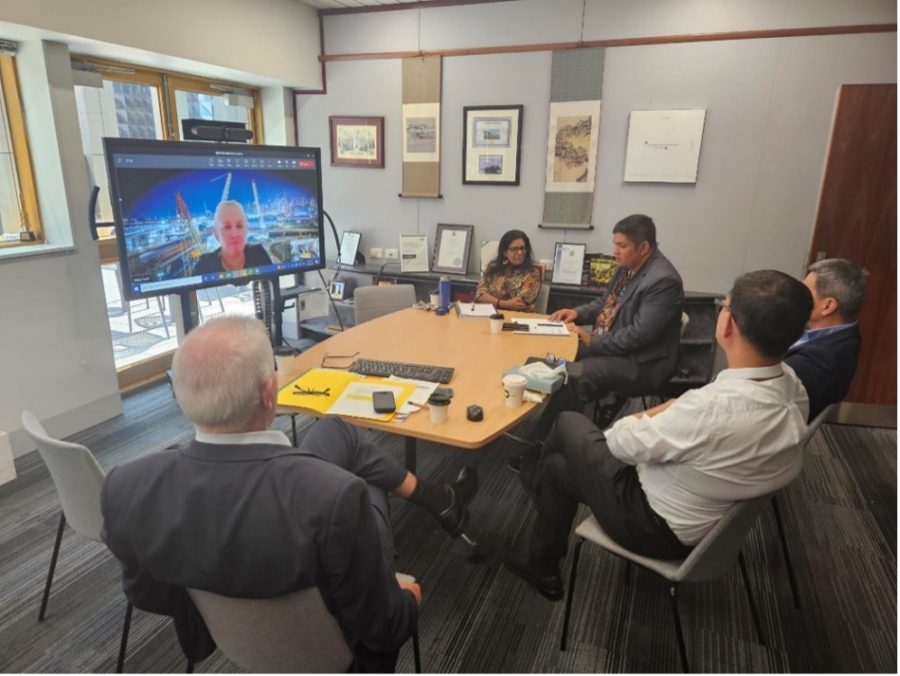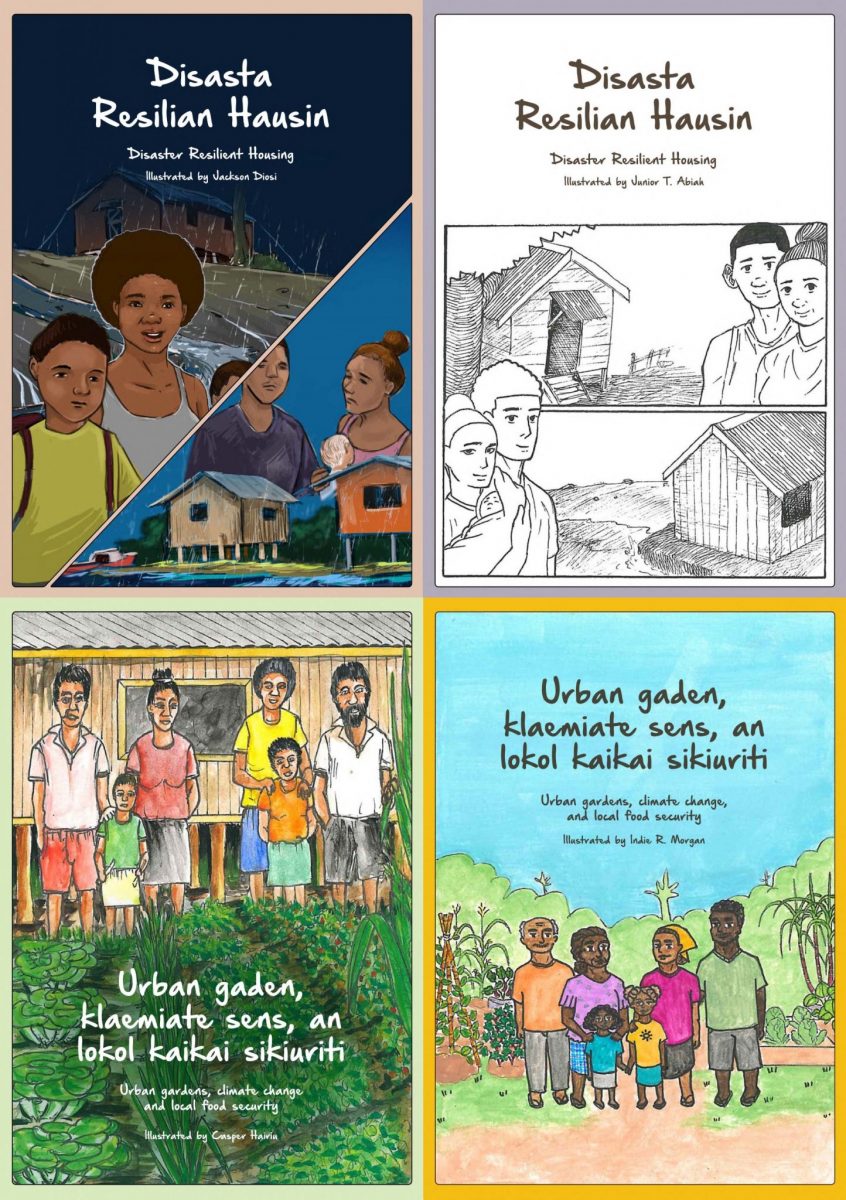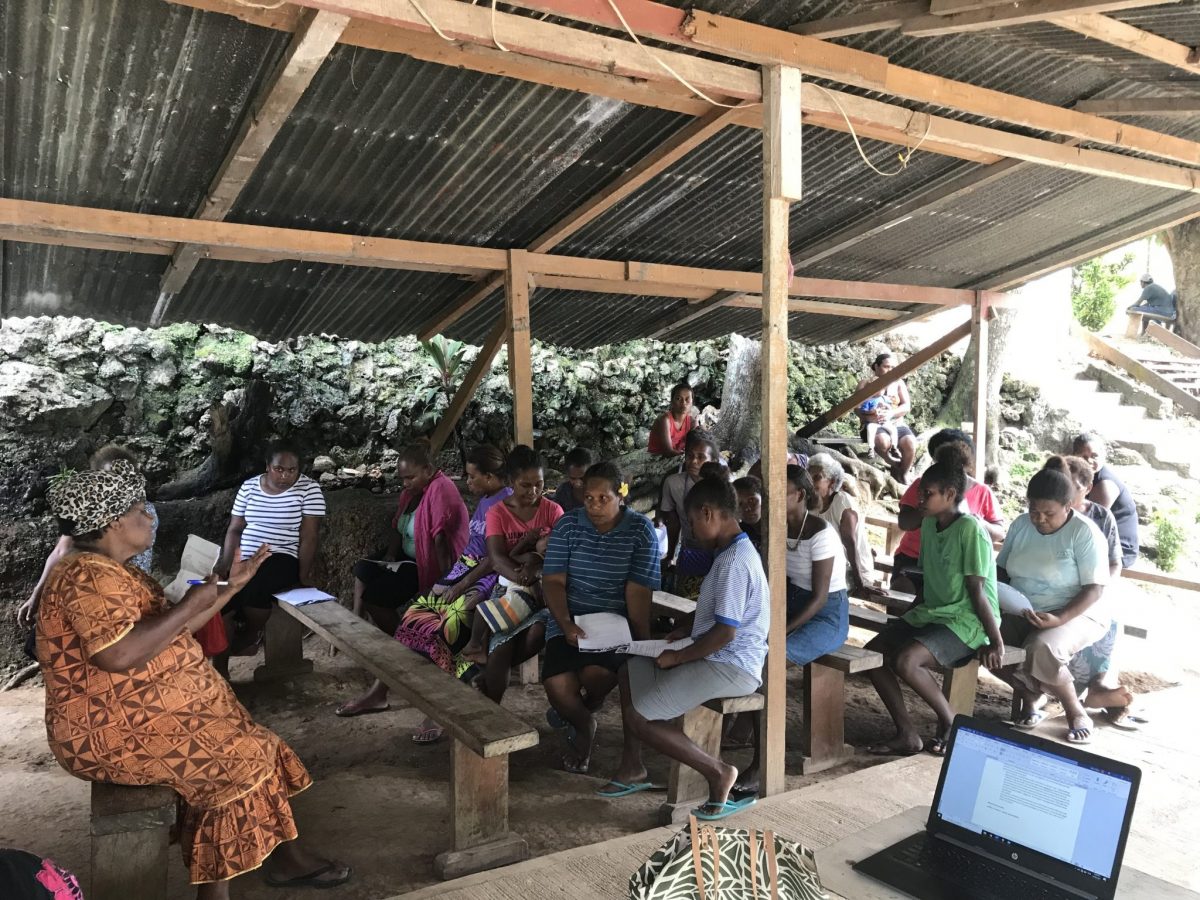Urbanisation and global environmental change are two of the most significant challenges facing cities and societies in the Global South. These challenges are particularly acute in developing countries in the Asia Pacific region.
Latest News: RMIT strengthen relationship with Solomon Islands National University (SINU)
Cyril Rachman, designated to represent SINU by the Vice Chancellor, spent a week in Melbourne in March participating in roundtables held with different RMIT schools. The purpose of the mission, organised by Prof. Darryn McEvoy and funded by DSC college, was to identify key areas where RMIT can support course development at SINU, as well as exploring the opportunities for greater collaboration and staff and student exchanges. This information will be used to inform a second MoU between the universities to be signed in 2024. Prof. McEvoy says, “this is a great opportunity to translate 10 years of research collaboration in Solomon Islands into meaningful and sustainable teaching and learning relationships that last beyond the life of applied research projects”.
Cyril’s first day of engagement involved meeting with senior members of Property, Construction, and Project Management led by Prof. Ron Wakefield and Prof. Usha Iyer-Raniga. Discussions with Dr Melissa Tinetti (Director, Built Environment & Sustainability) on vocational education were particularly fruitful. Prof. Iyer-Raniga says “this is a great opportunity for expanding our teaching and learning experiences in construction management in China, Hong Kong, Singapore, and Vietnam, into the Pacific. Linking vocational education to higher degrees highlight the importance of quality and flexibility with teaching and learning to support not only professional membership through formal accreditation of built environment programs such as building and construction and project management, but also ensure grounded responses to the local context in Solomon Islands”. Day one ended with an Indigenous tour of RMIT’s CBD campus.

Round table discussion with PCPM staff
The hosts of the morning meeting on day 2, were Prof. Andrew Butt and Dr. Mittul Vahanvati, representing Sustainability and Urban Planning in the School of Globalisation, Urbanisation, and Social Studies. The Directors of the Centre for Urban Research and the Urban Futures Enabling Impact Platform joined the lunch to continue discussions. The afternoon session was dedicated to Engineering, with representatives from Civil (Prof. Dilan Robert) and Humanitarian Engineering (Dr Nick Brown and Dr Spyros Schismenos). Both disciplines are highly relevant to the development and climate resilience context in the Solomon Islands.
Prof. Jago Dodson, Director of the Urban Futures Enabling Impact Platform, says, “The Pacific is one of the most important regions to Australia, with intertwined histories and ambitions. By working with SINU to support capacity building for Pacific communities to achieve direct improvements at the local level RMIT is contributing to real world impact on our shared challenges.”

Discussions with Engineering staff
The University of Melbourne then took over as Cyril’s host on day 3 of the mission. The morning was dedicated to meetings with senior staff at the School of Infrastructure Engineering and colleagues from the Faculty of Arts and Science, arranged by Dr. Serene Ho, before Cyril presented a seminar on ‘nature-based solutions in informal settlements’ at the Oceania Institute in the afternoon. Assoc. Prof. Debra McDougall, Deputy Director of the Institute, gave the welcoming speech whilst conversations with the audience, including students from the Pacific, were led by Dr Alexei Trundle, Melbourne Centre for Cities.

Cyril presenting at the Oceania Institute, University of Melbourne
About the Project
Climate change will aggravate the significant risks already posed by natural hazards, impacting towns and cities that are also rapidly urbanising. In the Pacific, geographical isolation places further stress on the resilience of communities in Small Island States (SIDS). Rapid urban growth often overwhelms local Government response, in some cases leading to unplanned informal settlements and a significant growth in the numbers of ‘urban poor’, a group considered the most vulnerable to the impacts of climate change.
Responding to this critical urban resilience agenda in the Global South, the Centre for Urban Research houses CRU-AP; a group of researchers drawn from across different schools and disciplines to collaborate on projects that offer scientific, technical, and capacity strengthening solutions to some of the most critical challenges facing fast-growing towns and cities in the Asia Pacific region. This geographic focus closely complements the Climate Change Transformations group, which predominantly focuses on the Australian context, allowing for a sharing of people and knowledge between the two climate adaptation groups.

Partners and regional engagement:
UN-Habitat (Nairobi and the Asia Pacific regional office)
UN 10YFP Sustainable Building & Construction Programme
Solomon Islands Government
Honiara City Council
Solomon Islands National University
Honiara City Youth Council.
Projects:
Climate Resilient Honiara, phase 2: funded by UNFCCC Adaptation Fund and administered by UN-Habitat (2022-2023).
Inclusive and Disaster Resilient Shelter Guide: Urban Informal Settlements, Honiara, Solomon Islands: funded by the AHP Disaster Ready programme and administered by Habitat for Humanity (2021 – 22)
Unlocking the potential of urban gardens as a mechanism for sustainable, climate resilient, livelihoods in Greater Honiara: funded by SPC (Pacific Community) (2021 – 22)
Climate Resilient Honiara, phase 1: funded by UNFCCC Adaptation Fund and administered by UN-Habitat (2019 – 2022).
Nature-based solutions (NbS) for enhanced climate resilience of informal settlements (SIDA)

Selected publications:
Journal articles
Reports
Women, urban gardens, and local food security
Inclusive and Disaster Resilient Shelter Guide: Urban Informal Settlements, Honiara, Solomon Islands
Nature-based solutions for enhanced climate resilience of informal settlements
Community profiling methodology
Enumerator training notes: community profiling
Local validation of community engineering actions
Kukum Fishing Village – climate resilient community development plan
Ontong Java – climate resilient community development plan
Aekafo-Feraladoa Planning Area – climate resilient community development plan
Wind Valley – climate resilient community development plan
Jabros – climate resilient community development plan
Design and location of new evacuation centres
Locally Appropriate Peri-Urban Land Administration Options
Inclusive and Disaster Resilient Shelter Guide: Urban Informal Settlements, Honiara, Solomon Islands
Climate risk comics (Pidgin)
Disaster resilient housing (Junior)
Disaster resilient housing (Jackson)
Urban gardens, climate change, and local food security (Casper)
Urban gardens, climate change, and local food security (Rowena)
Impact

Learn more about some of the impacts from the project here.


